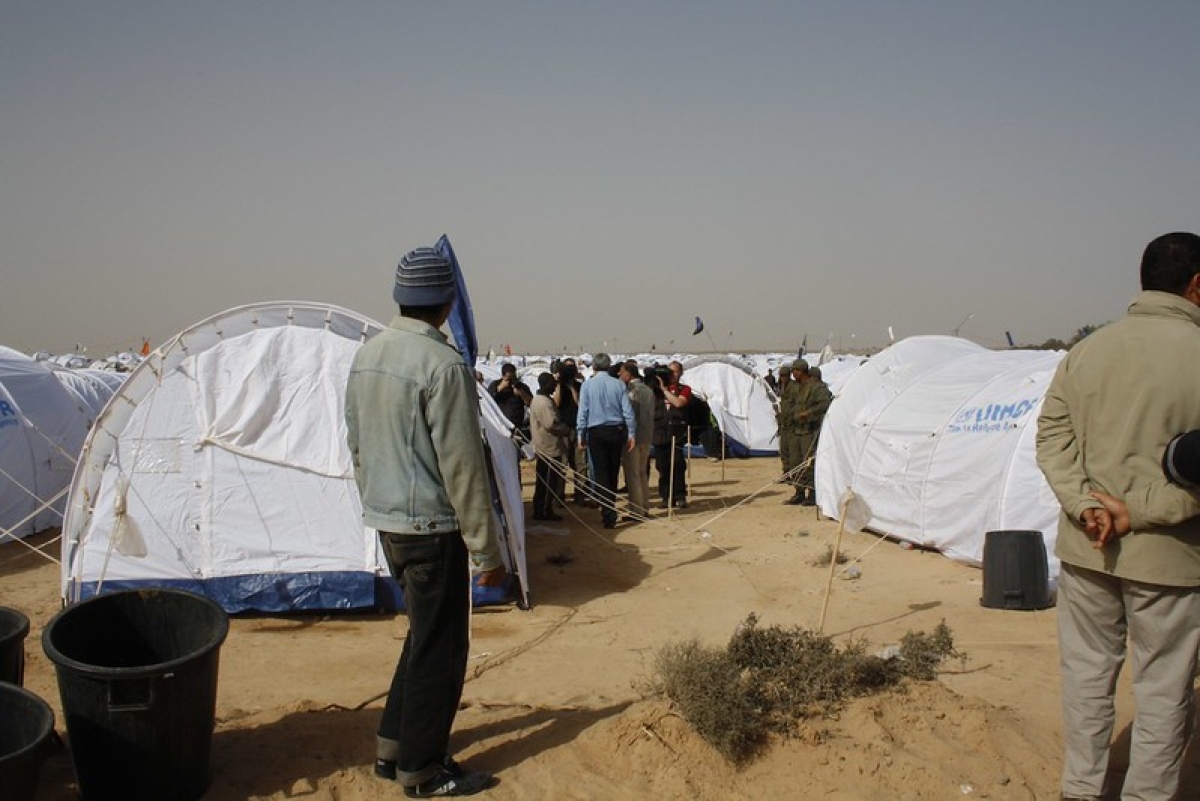UN: Massive Misshandlungen von Flüchtlingen an tunesischer Grenze

Transitlager für Flüchtlinge an der tunesisch-libyschen Grenze, Bildquelle: DFID, Flickr
Seit langem gibt es Berichte, dass tunesiche Beamten Flüchtlinge an der Grenze zu Libyen misshandeln. Dies bestätigt nun auch die UN.
Neu sind solche Berichte nicht, schon letztes Jahr wurde bekannt, dass Tunesien Flüchtlinge an die Grenze zu Libyen deportiert und dort quasi aussetzt. Dabei sollen schon mehrere Menschen zu Tode gekommen sein. In den letzten Jahren hat das Land sich zum Hub nach Europa entwickelt und die Repressionen gegen Flüchtlinge aus dem subsaharischen Afrika nehmen ständig zu. Trotzdem hat die EU einen so genannten Flüchtlingsdeal mit dem quasi diktatorisch regierenden Präsidenten Kais Saied abgeschlossen.
Nun gibt es neue Dokumente, diesmal offenbar aus UN Quellen, die ebenfalls von systematischen Misshandlungen berichten, sowohl auf tunesischer wie auch auf libyscher Seite:
According to a confidential UN briefing seen by the news agency Reuters, Tunisian border guards rounded up migrants and passed them to counterparts in Libya, where the migrants allegedly faced forced labor, extortion, torture and killing.
Hundreds of migrants were rounded up in Tunisia and sent to Libya, where they were kept in "abhorrent" conditions, according to a confidential UN briefing dated January 23 and seen by the news agency Reuters, the agency reported on June 11.
Although the briefing took place in January, Libyan human rights expert Tarek Lamioun told Reuters that he suspects transfers have continued as recently as early May this year.
Lamioun told Reuters he estimates that at least 2,000 migrants have been detained by Tunisian authorities and passed to Libya in 2024, citing information he collected in interviews conducted with more than 30 migrants.
The UN briefing, which has not previously been reported, was shared with diplomats in the region, Reuters reports. The agency has not managed to independently verify accounts of abuse contained within it.
"Collective expulsions from Tunisia to Libya and the associated arbitrary detention of migrants are fueling extortion rackets and cycles of abuse, which are already widespread human rights issues in Libya," officials at the UN briefing reportedly said.
They went on to allege that Libyan officials demand "thousands of dollars in exchange for releasing some migrants. (...)
Although Tunisia has repeatedly denied allegations of pushbacks, in May, the country’s President Kais Saied said that with hundreds of migrants arriving daily in Tunisia, his country was coordinating returns with its neighbors, reported Reuters.
The Libyan authorities have also said publicly that they work with their neighbors to solve migration issues.
Saied has underlined that his government respects human rights.
Last year, a UN fact-finding mission concluded that crimes against humanity had been committed in Libya against migrants, even in some detention centers that were managed by units that had received EU backing.